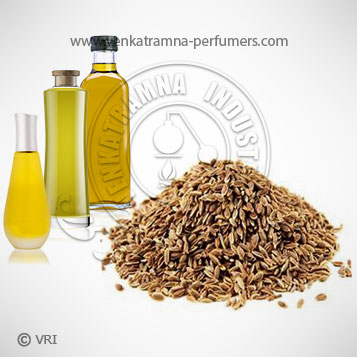
| Botanical Name | Cuminum Cyminum |
| Common Name | Cuminum Cyminum, Cumin Seeds, Jeera |
| Country of Origin | China, Uzbekistan, Tajikistan, Iran, Turkey |
| Solubility | Soluble in vegetable oil |
| Specific Gravity | Not Applicable |
| Optical Rotation | Not Applicable |
| Refrective Index | Not Applicable |
| PlantPart | Seed |
| Bland With | Angelica Root, Caraway, Lavender, Rosemary, Chamomile |
| CAS No | 68650-46-4 |
| Flash Point | 215° |
| Extraction Method | Solvent Extraction |
The completely natural product is obtained by solvent extraction of ground roasted seeds of Cuminum cyminum. It is extremely powerful, green spicy, but not sharp, more of a soft and mellow scent. This oil is wonderful for digestive disorders, and colic too. It is good for exhaustion and works well in blends for that purpose.
In use for over 4,000 years, Cumin was mainly used for its digestive properties and as a spice. The ancient Greeks and Romans used it much as we use black pepper. In the Holy Land, people used it to pay their debts and taxes with it. In the Middle Ages, feudal lords sometimes paid their serfs with Cumin for services rendered, before it fell out of favor with Europeans as a spice; at the same time, it began to grow in popularity in South America.
Color : Dark colour liquid with the characteristic odour,
Aroma : Cumin Essential Oil has a characteristic spicy, penetrating scent.
Volatile oil content: 10-11% (v/w) Residual solvent: Less than 25 ppm
The oleoresins can be used as an anti-oxidant, antiseptic, antispasmodic, antitoxic, aphrodisiac, bactericidal, carminative, depurative, digestive, diuretic, emmenagogue, larvicidal, nervine, stimulant and as a tonic. Cumin essential oil is also useful as a warming oil that helps relieve muscular pains and osteoarthritis. For the digestive system it is a stimulant that helps with colic, dyspepsia, flatulence, bloating and indigestion. For the nervous system, Cumin essential oil is a tonic with beneficial effect on headaches, migraine pain and nervous exhaustion.